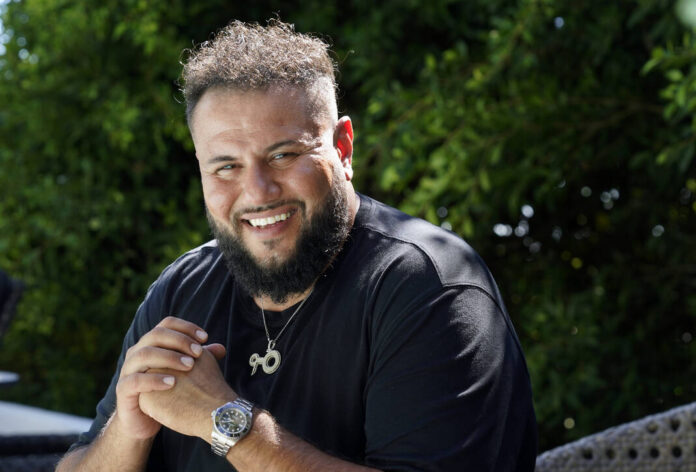NEW YORK — Up-and-coming comedian Mo Amer was opening for Dave Chappelle in 2014 when the more established comedian made a suggestion: Amer should make a short film to introduce his act.
“I started thinking about the short film. I put it together, I was obsessed. And then I wrote it out and then all my friends were like, ‘This is genius, bro. You need to save this for a TV series.’ And I was like, ‘Word? TV series?’ Since then, I’ve just been kind of accumulating all these stories from my mother, my family … my history, my refugee experience in America, the fish-out-of-water element.”
Amer’s true family history serves as the foundation of his new Netflix dramedy, “Mo.” He describes the series as a love letter to his Palestinian heritage and his hometown.
“Although it’s a refugee story, an immigrant Palestinian story, it’s also a love letter to Houston. It’s also like an everyman struggle (story) — people who are working paycheck to paycheck, they’re trying to take care of family, people that are dealing with addiction,” said the 41-year-old. “It has all these layers to it.”
The debut season, comprised of eight half-hour episodes, was created by Amer and Emmy-nominated actor Ramy Youssef, Amer’s good friend and former roommate. “Mo,” along with shows like Youssef’s critically acclaimed “Ramy,” is part of a growing — but still extremely underrepresented — movement in Hollywood bringing Muslim and Middle Eastern stories to the masses.
The series follows Mo Najjar (played by Amer) as his family, including his mother (Farah Bsieso) and brother (Omar Elba) navigate through life in the Houston area in ways many immigrants in America are forced to: seeking employment without citizenship and therefore working odd, under-the-table jobs, as well as maneuvering an often unforgiving health care system and trying assimilate into society.
Similar to the storyline, Amer’s own parents were originally from Palestine before fleeing to Kuwait. Amer was born there, but the Gulf War forced them to leave and eventually settle in Texas. Learning about his family history and their struggles through conversations with his mother helped create a blueprint. However, he also learned hard, previously unknown truths, including how his father was tortured in Kuwait.
In the series, flashbacks give context, and some are pivotal to both the show and his real life; episode seven opens with his mother cleverly hiding money as the family prepares to escape Kuwait.
“My mom started just crying when she saw it. She was just like, ‘Wow, I can’t believe you recreated this like that.’ She’s like, ‘How did you even remember the house, the colors, the things on the walls?’” Amer recalled proudly. “I can’t forget that.”
Houston is known for many things: space exploration, its world-renowned medical center and its slowed down hip-hop music known as screwed music; what America’s fourth largest city is not known for is a film and TV industry. However, Amer was adamant about shooting there, aiming to raise the show’s authenticity factor. Despite a couple of major films shot in Houston in the early ’90s it hasn’t been a destination for moviemakers.
Local talent throughout Texas was hired for production, and there are a few notable guest appearances, including rising Houston-based rapper Tobe Nwigwe who plays Najjar’s best friend, and cameos from well-known Texas-flag bearers Paul Wall and Bun B of the legendary southern duo, UGK.
“It just really was shocking to me there’s never been a narrative sitcom, native series filmed out of Houston, which is absurd to me knowing what Houston has to offer,” he explained.





